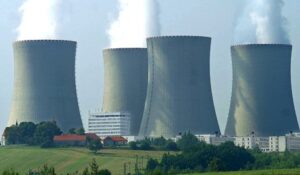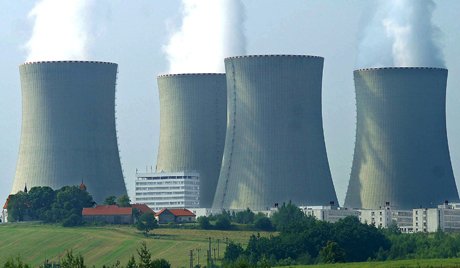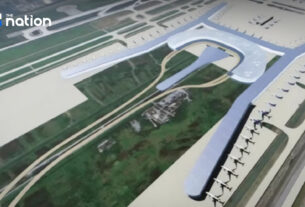 Thailand’s Nuclear fears justified
Thailand’s Nuclear fears justified
Bangkok Post Editorial
For five decades, the government has tried and failed to launch a nuclear power plant project. Today, however, its nuclear power dream is closer to becoming a reality for the first time.
This month, the Energy Regulatory Committee, the national energy body, is expected to sign an MoU with the Office of Atoms for Peace to jointly study the regulations needed for a nuclear power project. Unlike previous plans using traditional large reactors, the government this time aims to utilise small modular reactors (SMRs).
The nuclear energy development plan is part of the government’s “Power Development Plan 2024”, which aims to tap about 600 megawatts from atomic energy. Under the plan, which will be enforced until 2037, two SMRs, each with a capacity of 300MW, will be developed.
SMRs are seen as a game changer in energy transition and a response to the rise in demand for continuous energy for data centres and AI. Currently, the Energy Regulatory Commission of Thailand and the Electricity Generating Authority of Thailand are shopping for options. Last month, the ERC and Egat visited a small reactor project in Hainan, China, with plans to import two ready-made reactors for two locations in Thailand.
Policymakers at the ERC and Egat are quite confident that the small nuclear power plants will be developed, and the only challenge ahead is public acceptance. To begin, Egat must inform people living near the development area about its plans, and communities must accept them. Second, the agencies must convince the public that they have the ability to handle radioactive waste.
Without public acceptance, a nuclear power project, no matter how small and modern, will not get off the ground. A glaring example of this was the government’s plan to develop a 20MW nuclear reactor in tambon Saimoon, a low-lying farm community in Ongkharak district of Nakhon Nayok province. Locals in the area complained that the government did not seek public acceptance before considering the project.
The major concern here is whether or not officials would have the capability to handle radioactive waste. The public’s fears are not groundless. A leakage of hazardous waste in farming communities in recent times justifies such fears.
Indeed, Thailand’s record of handling radioactive waste is worrisome. Over 23 years ago, a cobalt-60 cylinder used for radiology treatment went missing from a warehouse in Bangkok and ended up in the hands of a refuse scavenger, who sold it to a scrap dealer, who in turn broke the highly radioactive tube into various pieces to be resold.
The outcome was tragic, as 1,872 people living around the scrapyard were found to have been exposed to harmful levels of radiation. Three people — two scrapyard workers and the scrapyard owner’s husband — died within two months from radiation sickness.
Last year, a tube containing radioactive Caesium-137 went missing from the National Power Plant 5A Company’s facility in Prachin Buri province before later being found burned in a scrap metal factory. Both accidents raised public doubts over whether government agencies and manufacturers can manage radioactive waste.
Government officials often say public fears are driven by tragic nuclear accidents in the past, such as in Chernobyl in Ukraine and Fukushima in Japan.
That notion is not entirely true. What the public fears is the ability — or lack thereof — of officials to handle nuclear reactor safety issues and highly dangerous radioactive waste.
Source: https://www.bangkokpost.com/opinion/opinion/2915052/nuclear-fears-justified



